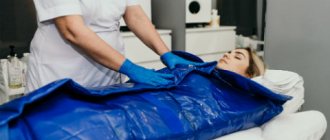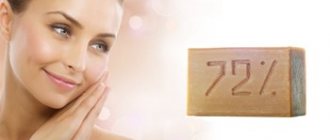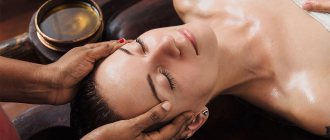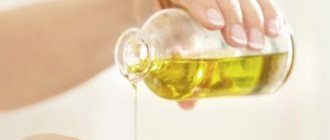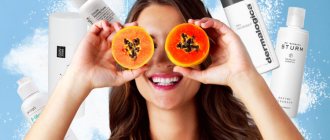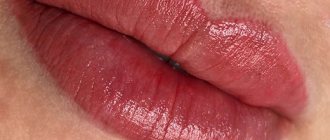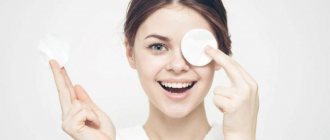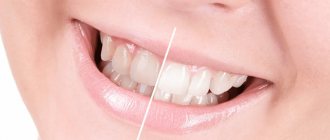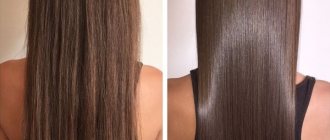Tar soap is far from the most popular and widespread product. Some people don't like soap because of its strong smell, while others complain that it doesn't have the most favorable effects on the skin. There is a misconception that this type of soap is used to combat lice, but this is far from true. It has long gained universality, although it is not suitable for everyone. In the article we will take a closer look at 7 manufacturers of tar soap, talk about their advantages and disadvantages, and areas of use. We will also share user reviews about each company. We hope that thanks to the compiled rating it will be easier for you to decide on the choice of soap manufacturer.
How did laundry soap come about?
In Soviet times, there were three types of soap: laundry, bath (toilet) and children's. The household product was distinguished by the fact that it was good at washing various types of dirt. They washed floors and dishes with him. The brown block replaced all the household chemicals that are available now.
The first similar soap was born in Marseille (France) in the Middle Ages. Olive oil and salt were used to produce it.
In Russia, laundry soap is made from vegetable fats, oil, and salt. It is allowed to use fats of animal origin - lamb, beef, fish, pork. Due to its high alkali content, soap foam has a pronounced disinfecting effect - it prevents the growth of bacteria and promotes wound healing.
Kinds
Laundry soap contains increased amounts of acids and alkalis.
In the classic version, it looks like a rectangular brown bar with pressed numbers - 65, 70 or 72. They indicate the percentage of fatty acids. The higher the indicator, the better the soap copes with removing contaminants. According to the form of release, soap is distinguished:
- Liquid. Convenient to use, but may contain fragrances and synthetic detergents.
- Lumpy. Inexpensive and natural. The best grade is considered to be 72% soap.
- Powdery. Designed for washing thin and delicate fabrics, used in industry (in metallurgy for drawing wire).
The color of the soap can vary from light yellow to dark brown, depending on the degree of cleaning. The unrefined version smells stronger.
Top 5, “Cinderella” (liquid), “Spring”, “Agafya”, “Duru Clean&White”.
Advantages and disadvantages
There are legends about the beneficial properties of laundry soap. They not only wash and wash clothes, but also strengthen hair, treat ARVI, thrush, acne, and replace antiperspirant. Pediatricians advise washing newborn diapers, clothes and bedding for allergy sufferers with laundry soap. Unlike modern detergents, it never causes allergies.
Advantages:
- wide scope of application;
- low price;
- hypoallergenic.
Flaws:
- smell.
Some people describe the smell of laundry soap as smelling like feces. They categorically refuse to use it, despite all the advantages. To be fair, today there are products with fragrances that muffle the natural aroma. But often the better the soap smells, the more harmful chemicals it contains.
Application
The soap is easy to use. To combat inflammation, you need to wash your face with soap twice a day. The same principle applies to using body soap. But if you notice a negative reaction, stop using the soap immediately. If there is no reaction, continue to use it not only to maintain hygiene, but also to eliminate skin inflammation. For example, rub in a spot format on pimples and inflammations, do not wash off.
The recipe for tar ointment is popular. Grate a little soap, melt in a water bath, cool and add warmed wine and a little more soap. Mix and apply directly to inflammation.
What is tar soap used for?
The main area of application of tar soap is cosmetic. It is used:
- for the treatment of psoriasis and seborrhea;
- as an antiparasitic against lice;
- for various types of dermatitis;
- against inflamed acne;
- from black spots on the face;
- from hair loss.
The therapeutic effect is achieved due to the content of tar, a potent natural substance. It is obtained from birch bark by simmering in an airtight container. Tar has a pronounced antibacterial and anti-inflammatory effect, promotes the regeneration of damaged skin and improves blood circulation.
Important! Tar is an allergen. You need to use it carefully, observing the reaction. Signs of an allergy include redness and itching.
The product should not be used frequently due to its ability to dry out the skin. For a therapeutic effect, application 2-3 times a week is sufficient.
Kinds
Essentially, tar soap is a mixture of ordinary soap and tar. It contains up to 10% tar, the rest is a soap base: sodium salts of fatty acids, palm and other vegetable oils, water, sometimes fragrances, dyes. The composition of the product differs from different manufacturers. To reduce its cost, synthetic detergent components can be used.
The following types of tar soap are distinguished:
- Lumpy. Classic option. It looks like a brown bar with a pronounced tar smell. Its cost is affordable, and its composition is often as close to natural as possible.
- Liquid. Its main advantage is ease of use. As a rule, liquid tar soap foams better and smells nicer, but contains surfactants and various synthetic additives.
We recommend: Choosing a modern kitchen sink – quartz or granite?
Top 5 manufacturers of tar soap: “Vesna”, “Nevskaya Kosmetika”, “Agafya”, “Kleona”, “Babushkina Pharmacy”.
Advantages and disadvantages
Tar soap stands out noticeably among other types of soap. Its undoubted advantages are:
- healing effect;
- affordable price compared to other cosmetic and medicinal products;
The disadvantages of the product include:
- specific smell;
- narrow scope of application;
- allergenicity.
The fat composition of the product corresponds to group 3 toilet soap. This means that its foam is weak and not stable. In addition, tar soap absorbs water well. It is not very convenient to use it as a detergent, as well as for household needs. It copes worse with dirt and leaves behind a tar smell.
Negative effects of tar on the body
For a cosmetologist or venereologist, proper care for the condition of the skin of the face and body is a paramount issue.
Since tar has the properties of narrowing pores, deep cleansing the epidermis, dry skin and its discomfort are obvious. Unplanned skin problems are possible. Problems may arise - peeling or more severe punishment, redness of the skin, leading to allergies.
There should be moderation in everything; if any of the described problems appear and are visible to the naked eye, seek help from a specialist. A knowledgeable, smart doctor will explain, identify the cause, and prescribe treatment leading to a speedy recovery.
It is strictly forbidden to take tar internally.
In an adult, this use can cause irritation of the gastric mucosa, vomiting, dizziness, and in some cases, fever, diarrhea.
Read also: Why tar soap is useful - effect and benefits
It’s more difficult with children, so adults, be vigilant, put the bubbles and bottles with tar in a safer place where the child will never be able to reach. There are many reviews about the benefits and harms of tar soap, this procedure helps some, but not others, everything is individual.
What is the difference between laundry soap and tar soap?
These two types of soap may be similar in appearance - both are dark in color, with a specific smell, in the lump version they are large bars. Photo:
But even with a remote external similarity between tar and laundry soap, the difference is clearly visible:
- Tar soap is darker, has a sharp tar smell, vaguely reminiscent of burning from a fire. Laundry soap is lighter in color, often has engravings with numbers, and has a special smell. Its smell is unlike anything else and is difficult to describe.
- Laundry soap has a wide range of applications; it can be used for washing, cleaning, disinfecting wounds, and in the garden. Tar soap is mainly used against dandruff, acne, skin diseases, and for hair care.
- Tar soap differs in composition - it contains birch tar. Laundry soap does not have such a component.
Beneficial features
Birch tar can be used in its natural form for the health and beauty of the body, but as part of liquid soap it is more effective. Auxiliary components provide improved blood flow, thereby enhancing the medicinal properties of the substance. In order to correctly use the remedy for various problems, consumers need to know what benefits tar soap brings to the body. Health benefits of birch tar:
- Antiseptic . Tar soap is extremely useful for various skin lesions, preventing and stopping the growth of microbes, cleansing its surface and accelerating regeneration.
- Anti-inflammatory . Liquid soap can relieve inflammation that has arisen on the surface of the epidermis, thereby helping to speed up healing. For example, this remedy is excellent for treating acne accompanied by inflammation.
- Antiparasitic. Tar can stop the activity of harmful microorganisms that cause fungus.
comparison table
Those who have at least once used both soaps clearly understand the difference between them. We suggest comparing their characteristics in the table:
| Laundry soap | Tar soap | |
| Application area | Laundry washing, wet cleaning | Solving cosmetic and medical problems: acne, dandruff, psoriasis and others |
| Compound | Sodium salts of fatty acids, water, sodium chloride (salt). May contain bleaches, fragrances, preservatives, dyes | Sodium salts of fatty acids, water, sodium chloride (salt), birch tar. May contain fragrances, dyes, foaming agents |
| Kinds | 65%, 70%, 72%, liquid, solid, powder | lump, liquid |
| Smell | Sharp, specific, quickly disappears | Sharp, specific, long lasting |
| Additional properties | Effective for disinfecting wounds, controlling pests on plants, against inflammation of the skin | Helps against lice |
| Laundry | Removes stubborn stains and disinfects | Not usually used |
| Effect on skin | Reduces inflammation, cleans well, dries | Heals, cleanses, dries, relieves inflammation |
| Hypoallergenic | Yes | No |
| Main advantage | Inexpensive and effective product with a wide range of applications | Pronounced cosmetic and therapeutic effect |
| Main disadvantage | Smell | Not suitable for everyone (allergenic, smell) |
| Price for 200 g (ml) | 20-70 rubles | 35-250 rubles |
Comparison of the presented funds
The table summarizes the main parameters of the products discussed above.
| Brand | Type | Weight (g) | Additional components |
| Kleona | hard | 80 | essential oils of jojoba, avocado, olive, coconut |
| Spring | hard | 140 | glycerol |
| Nevskaya cosmetics | hard | 100 | — |
| Agafya | thick | 300 | extracts of calendula, meadowsweet, sweet clover |
| Spivak | hard | 100 | olive oil, coconut oil |
Which is better according to reviews?
Despite the large selection of modern products - detergents and cleaners, washing powders, cosmetics, tar and laundry soap are very popular. First of all, they are in demand among the older generation, who are familiar with the effectiveness of the products firsthand and have been using them since childhood.
First of all, buyers value naturalness in laundry and tar soaps.
The reviews do not compare them, so it is not possible to determine which is better. They are used for different purposes.
Reviews of tar soap
Tar soap is not suitable for everyone, so reviews about it are not always positive. You need to be prepared for a specific smell, and after washing, apply a moisturizer.
- Lena K.: “I recommend this product to all girls with problematic and oily skin. Tar soap really improves its condition, cleanses it incomparably (no other washes can compare), gets rid of acne and prevents the appearance of new ones. I use it to prevent rashes before menstrual periods. Helps out a lot!”
- Violetta: “I’ve been friends with tar soap for 30 years. Dandruff appears periodically since adolescence. As soon as my head starts to itch, I make a soap foam and apply it to the roots of my hair. After an hour I wash it off. I also like the tar shampoo “Psorilom”, but it costs more.”
- Ruslan: “It helped with rashes on the face as a teenager. But the smell is terrible.”
- Julia: “I read laudatory reviews and bought myself a bar of tar soap. I don't understand how people use it. I couldn’t comb my hair after washing, the whole skin on my face felt tight, and the smell was just something! I stood in the bathroom for two days and it was impossible to get in. I’m generally silent about my hair!”
- Ksyusha: “I’m 18 years old, and the pharmacy recommended tar soap for acne. I used it for a month and my face became clear. But it didn’t suit my mother because she has sensitive and dry skin.
- Marina: “Always lies in the bathroom in case a pimple pops up. And I even like the smell - natural, either tree bark or a fire. You just need to get used to it."
We recommend: Gas stove or hob – which is better to choose and what experienced housewives advise reviews
Reviews of laundry soap
Laundry soap is often used along with modern household chemicals. Most people use it to wash socks and stubborn stains. Less common are those who use it for everything: washing dishes, washing the body, washing hair, cleaning the house, and gardening. Reviews from fans and opponents of laundry soap:
- Katya: “Tar, laundry soap is some kind of relic of the past. The stores are full of harmless household chemicals that do their job flawlessly. I’m generally silent about using it on the body and hair. They need nutrition and hydration, but soap only dries them out.”
- Olga: “I buy laundry soap “Effect 78%.” I love its smell. It reminds me of unrefined oil. I use it to wash underwear, socks, baby diapers, and remove stubborn stains. Works better than any stain remover."
- Oksana: “After I was diagnosed with allergic dermatitis to powders and gels, I began using laundry soap to wash dishes. At first it was uncomfortable, but then I got used to it. But my health is fine. It cleans and washes everything perfectly. And you don’t need to rinse it many times, everything creaks after the first time. Saving water."
- Sergey: “I use laundry soap against pests. Helps against aphids, thrips and any other scourge on plants.”
- Sasha: “I have laundry soap in my medicine cabinet. The doctor advised us to disinfect wounds with it, especially after bites from dogs, cats, or ticks. And just treat children’s broken knees.”
- Arina: “An irreplaceable thing for hand washing. It washes well. I don’t really like the smell, but it’s tolerable and dissipates quickly. It is also useful to wash with laundry soap for those with oily skin. It removes acne well. After a shower, all the pores open and the body breathes.”
Best lists
The list of the best tar soaps includes:
- Lump - Krasnopolyanskaya cosmetics.
- Liquid - Babushkina Pharmacy.
- Thick – BIO SPA.
Basic information on the selected products is presented below.
Lump – Krasnopolyanskaya cosmetics
Soap with tar from the Krasnopolyanskaya Cosmetics company is ideal for washing skin and hair. The optimal combination of olive and tar oils quickly relieves seborrhea, inflammation and oily shine. The natural composition and craft packaging make this product even more attractive to consumers.
| Type | hard |
| Weight (g) | 110 |
| Additional components | olive oil |
Price tag: from 290 to 315 rubles.
Krasnaya Polyana cosmetics soap
Liquid – Babushkina Pharmacy
An ideal assistant in daily hand care will be tar liquid soap from the Babushkina Pharmacy brand. Suitable for all skin types, restores and moisturizes the skin of the hands. The antibacterial effect will keep your hands clean for a long time. Helps minor wounds and scratches heal faster. The smell is pleasant, not pungent.
| Weight (g) | 250 |
| Type | liquid |
| Add. Components | calendula extract, chamomile |
Cost: from 110 to 167 rubles.
Babushkina Pharmacy soap
Thick – BIO SPA
This product from BIO SPA is an excellent option for those who want a universal product for face, body and hair. The thick gel-like texture lathers pleasantly and creates a rich lather. It has a subtle and unobtrusive odor and dark brown color. It copes well with skin problems such as acne, acne and pimples.
| Type | thick |
| Weight (g) | 300 |
| Additional components | olive, almond, grape oils |
Price: 249 - 277 rubles.
BIO SPA tar soap
Contraindications:
In general, natural tar is well tolerated by the human body. However, you should definitely take into account contraindications to the use of tar.
If any unwanted reactions or side effects occur, you should stop using the tar product.
- allergy;
- sensitive, tender or dry skin;
- increased photosensitivity;
- exacerbation of chronic skin diseases;
- kidney diseases.
Intimate hygiene
Despite the fact that the aroma of tar soap impresses few, it can be used with great success and benefit as an excellent product for caring for intimate areas. Thanks to its wound-healing, anti-inflammatory, antimicrobial, restorative and softening properties, tar soap copes well with many problems of the genital organs. In addition, treating the genitals with this product helps regenerate the mucous membrane after microcracks, injuries and various types of wounds.
Tar soap for intimate hygiene is also used as a sure remedy against eliminating the initial signs of candidiasis. Regular use of the product prevents itching and irritation of the mucous membrane.
To treat candidiasis, tar-based soap is used twice a day (mornings and evenings). As a prophylactic against candidiasis, it is enough to use tar soap once a week.
Other Hair Uses
In addition to washing your hair, this soap is suitable for masks. There are several proven recipes that help get rid of various problems in a minimum amount of time.
Anti-dandruff masks
The following recipes will help remove dandruff caused by incipient seborrheic dermatitis or from an incorrectly selected shampoo:
- A tablespoon of ground black soap should be combined with 5-6 drops of vitamin E and A. Mix everything and apply to the scalp. Wash off after 45-50 minutes.
- Pour boiling water over a small amount of colorless henna and add two tablespoons of soap. Stir until smooth. Rub into roots and leave for 10 minutes.
- Combine a grated spoon of tar soap with 10 ml of coconut oil. Apply the composition to the scalp and hold for about 10-15 minutes.
For baldness and accelerated hair growth
A mask of: 10 ml of castor oil, 2-3 drops of lemon essential oil, a tablespoon of finely grated soap will help against hair loss. The ingredients must be mixed and rubbed into the roots for a quarter of an hour.
